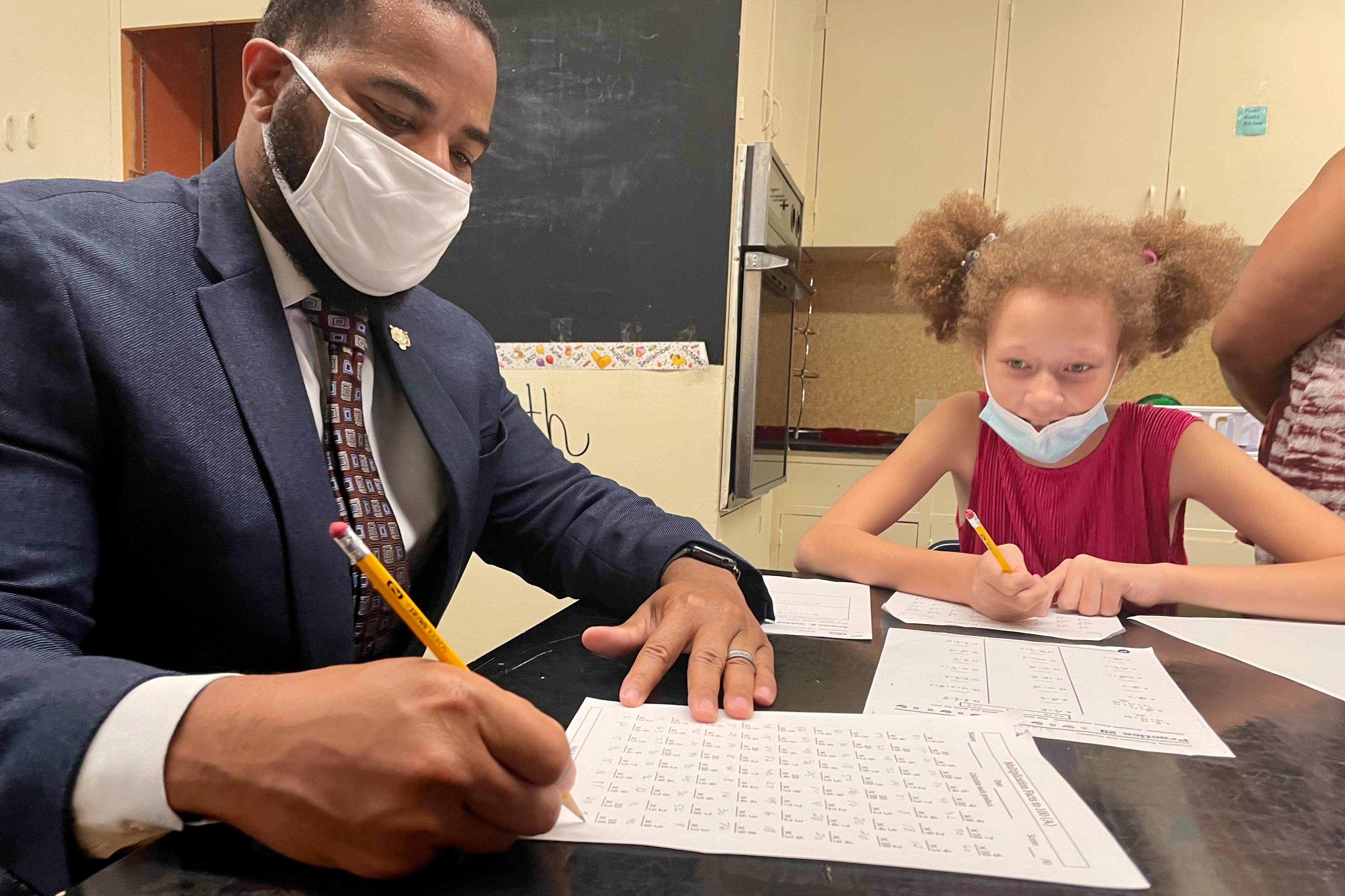The Tennessee Department of Education is seeking public input on its recently announced plans to overhaul its education funding formula. Tennessee students, parents, and education experts interested in helping to review and revise the state’s funding formula can apply to be on one of 18 education subcommittees that will meet online and in person over the next three months.
The groups range from the student engagement subcommittee to the fiscal responsibility group to the principal advisory team. According to a statement, subcommittee members will meet with Tennessee Department of Education employees to discuss how to strengthen education.
On Friday, Tennessee Gov. Bill Lee unveiled his plan to spearhead a “rigorous review” of Tennessee’s nearly 30-year-old public education funding formula.
“We all recognize that a funding formula that has been in place for 30 years likely has a lot of opportunity for improvement. Our schools are significantly different than they were 30 years ago. Our approach to learning is different than it was 30 years ago,” said Lee, during Friday’s press conference.
“There have been best practices across the country that have been implemented that we can learn from as we modernize and update our funding approach,” he added.
The State Collaborative on Reforming Education, a research and advocacy group commonly known as SCORE, released a statement following the governor’s speech saying that the funding review is well-timed to help address the lingering disparities in education exacerbated by the pandemic.
Lee said that education funding should be a transparent and accountable “return on investment” and added that funding should not follow school systems but instead follow students. Several organizations have promoted this student-centered funding model for more than a decade, including the American Legislative Exchange Council, commonly known as ALEC, a conservative organization that drafts model legislation for lawmakers.
In a policy draft from 2010, the organization stated, “A student-centered public school finance model also compliments efforts to expand private-school choice because it is grounded in the principle that public funding is first and foremost for the benefit of students not school systems.”
Lee’s pivot to student-centered funding comes as the Tennessee Supreme Court is deliberating on the state’s appeal to have its overturned school voucher law restored. It also comes during an ongoing school funding lawsuit, which has stretched on for six years and now pits 147 school districts against the state.
Lee did not mention the lawsuits during Friday’s announcement, but he emphasized that he’s open to discussion and change. “Most important in the next weeks and months ahead is that we listen, it’s that we get input, it’s that we have feedback,” he said.
To sign up for one of the 18 subcommittees below, click here.
Student-centered funding subcommittees
- Student Engagement Subcommittee, Chair: Elizabeth Brown, State President, Future Business Leaders of America – Tennessee; Senior, Coffee County High School
- Students with Disabilities and Gifted Students Subcommittee, Chair: Commissioner Brad Turner, Tennessee Department of Intellectual and Developmental Disabilities
- English Learner Subcommittee, Chair: Raul Lopez, Executive Director, Latinos for Tennessee
- Economically Disadvantaged and Highly Mobile Students Subcommittee, Chair: Victor Evans, Executive Director, TennesseeCAN
- Parent Choice and Voice Subcommittee Parent Choice and Voice Subcommittee, Chair: Derwin Sisnett, Commissioner, Tennessee Public Charter School Commission
- Teacher Advisory Subcommittee, Chair: Morgan Rankin, 2021-22 Teacher of the Year, Johnson City Schools
- Principal Advisory Subcommittee, Chair: Farrah Griffith, Principal, White County Schools
- School System Personnel Subcommittee, Chair: Steve Starnes, Director of Schools, Greeneville City Schools
- School System Leadership Subcommittee, Chair: Danny Weeks, Director of Schools, Dickson County Schools
- Rural and Small District Subcommittee, Chair: Janet Ayers, President, The Ayers Foundation
- Suburban Districts, Municipals, and Fast-Growing Communities Subcommittee, Chair: Ted Horrell, Director of Schools, Lakeland School System
- Urban District Subcommittee, Chair: Cato Johnson, Chief of Staff and Senior Vice President of Public Policy/Regulatory Affairs, Methodist Le Bonheur Healthcare
- Higher Education and Post-Secondary Readiness Subcommittee, Chair: Youlanda Jones, President, Tennessee Colleges of Applied Technology- Covington, Ripley Newbern
- Chambers of Commerce and Industry Subcommittee, Chair: Jared Bigham, Senior Advisor on Workforce & Rural Initiatives, Tennessee Chamber of Commerce
- Post-Secondary Readiness and the Business Community Subcommittee, Chair: Randy Boyd, President, University of Tennessee System
- Education Foundations Subcommittee, Chair: Dan Challener, President, Public Education Foundation
- Regional Collectives and Advocacy Subcommittee, Co-Chairs: Scott Niswonger, Chairman and Founder, Niswonger Foundation, and Nancy Dishner, President and CEO, Niswonger Foundation
- Fiscal Responsibility Subcommittee, Chair: Justin Owen, President & Chief Executive Officer, Beacon Center of Tennessee
Editor’s Note: This story has been updated to include the names of the subcommittee chairs, which state officials released Wednesday evening.





